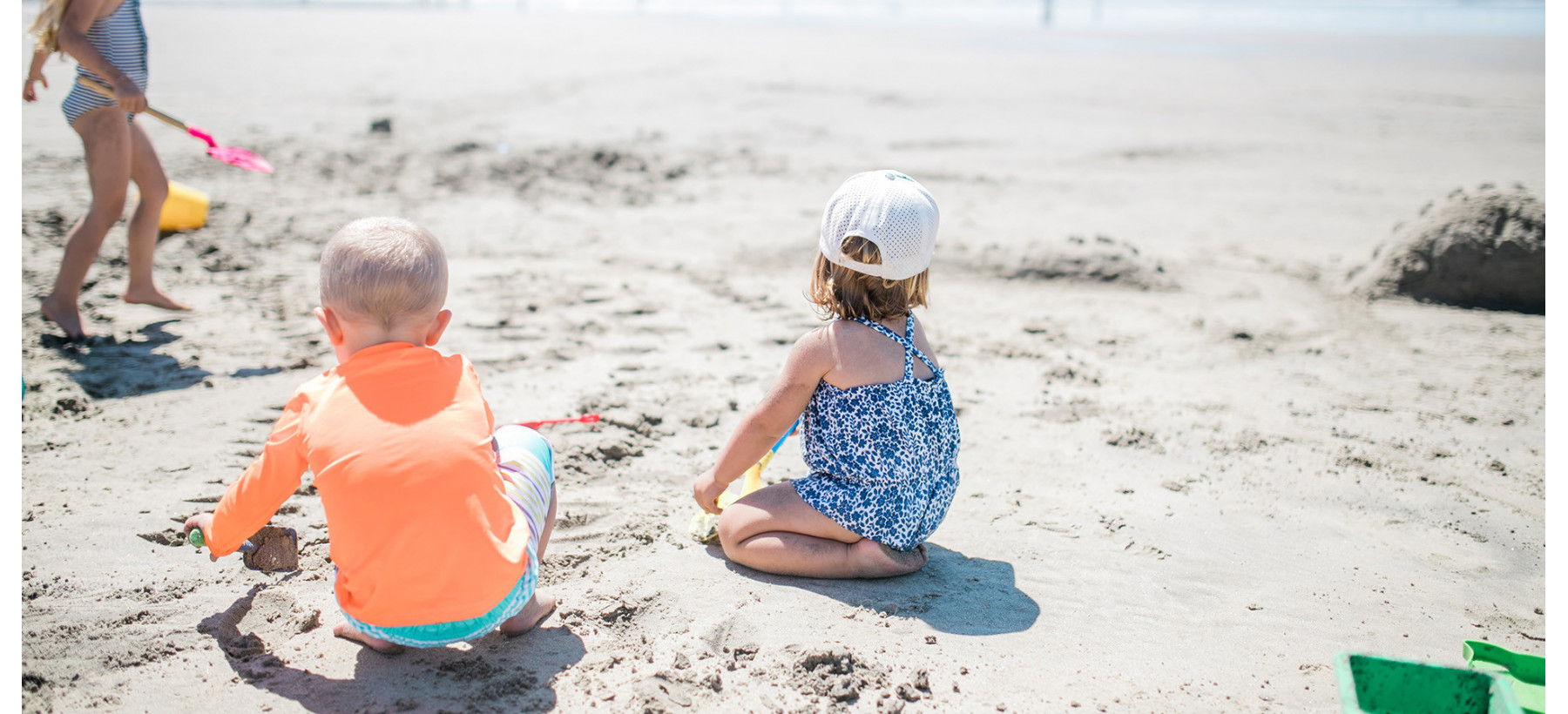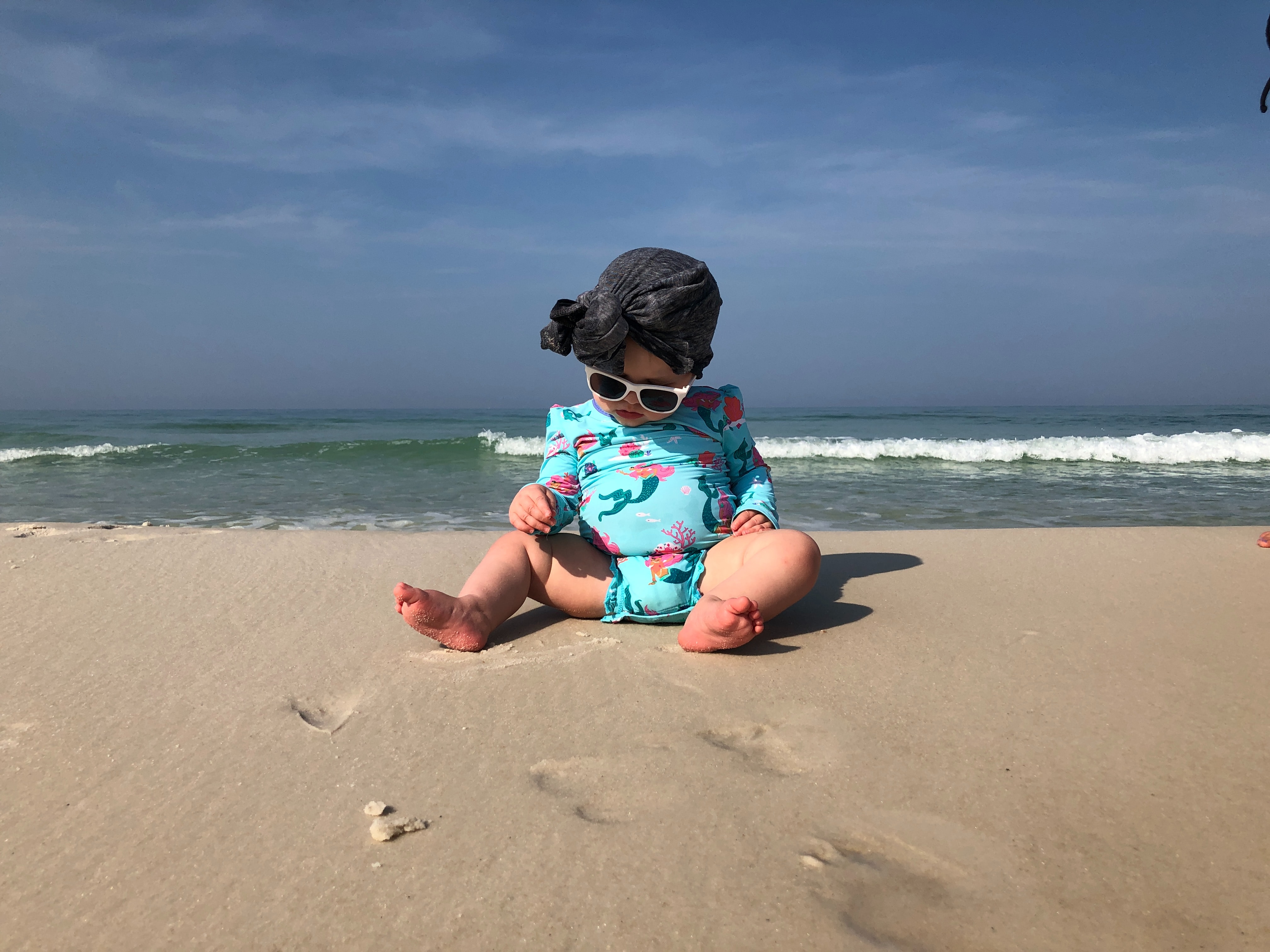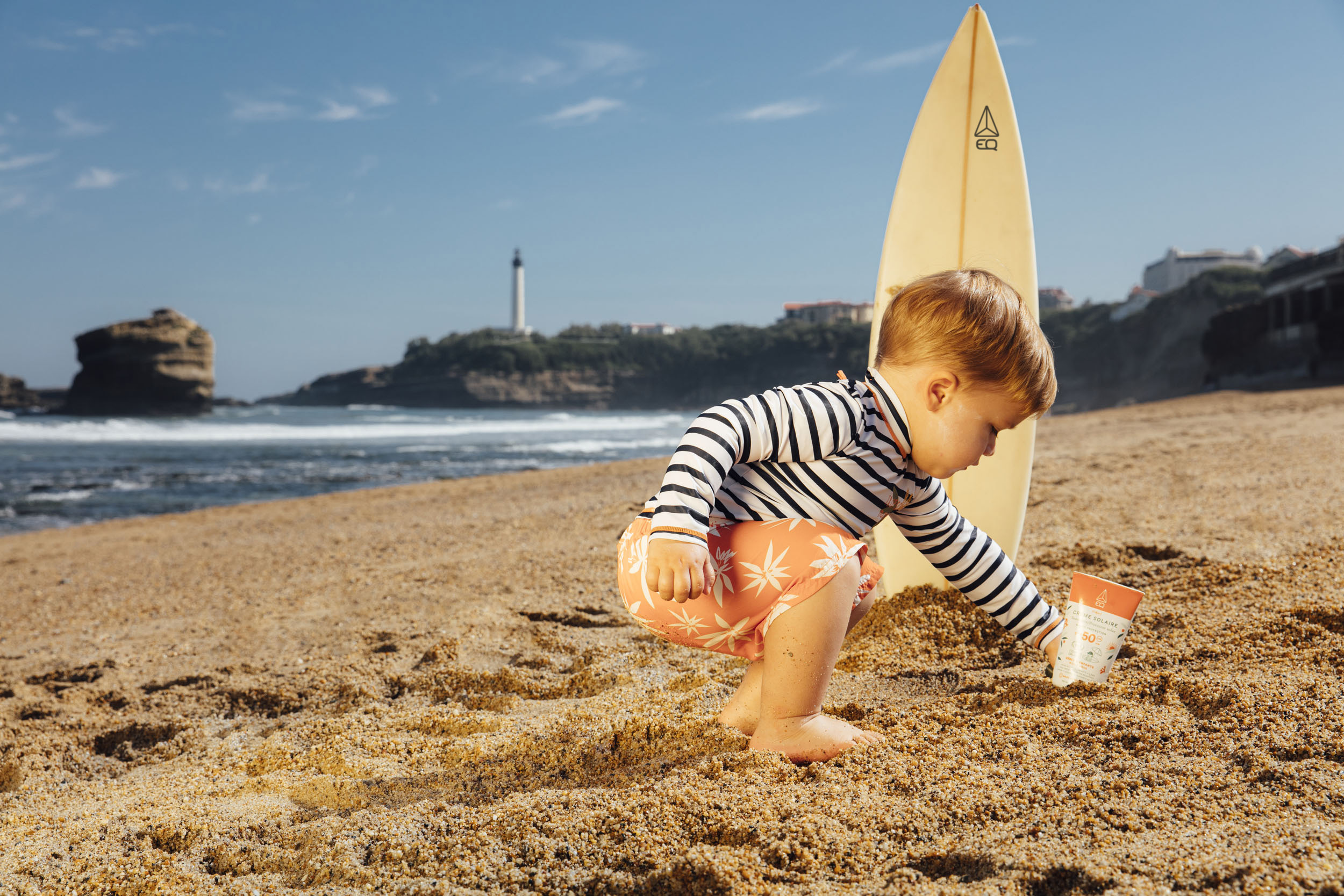How to protect your baby from the sun ?

Discover our 4 advises to protect the skin of your baby from the sun rays
Every day we are exposed to the sun. However, if we abuse of it or if the skin is not protected, sun damage can have serious consequences, especially during childhood.
Sun's aggressions, which children can be confronted with from an early age, increase the risk of becoming intolerant or suffering from sun allergies. The first years of contact between sun and babies are decisive for their health and their skin. We must therefore learn to protect them.

Why are babies more vulnerable to UV light?
Ultraviolet radiations are dangerous for the skin, at any age, and particularly for babies.
Indeed, babies' and children' skin of babies is different from adults' skin, it is not a miniature version. Babies' skin has specific characteristics, requiring particular vigilance with regard to the sun's rays: the dermis of babies is thinner, the hydrolipidic barrier is still immature, the epidermis is poor in melanocytes (so there is little melanin, which is essential for the skin's anti-UV shield), etc.
Therefore, some UV rays, which for us adults seem harmless, can attack the fragile skin of babies and have serious consequences on the cells. The skin is therefore a health capital to be pampered from childhood with specialized products and natural compositions.

How to protect your baby's skin ?
Regardless of age, unprotected sun exposure is dangerous to health, especially for babies.
The first thing to do to protect your child is not to expose him/her to the sun. However, when you go out, it is essential to apply a high protection sunscreen with a natural and certified organic composition, specialized for babies and children, but this is not enough.
Other actions (recommended by the Ministry of Solidarity and Health) should be adpted to protect your child:
- Pay attention to outing times
As a general rule, do not expose your baby to direct sunlight, even with a high protection sunscreen, and avoid taking your child out during the hottest hours of the day, between 11am and 4pm, because these are the hours when ultraviolet rays are most intense, according to the Ministry of Health.
This advice is also valid for adults, at the hottest time of the day, the sun can cause real damage to the skin and the sun's capital.
- Apply SPF50 sunscreen regularly
When you go out, apply a SPF50 sunscreen with double UVA/UVB protection to your baby at least 30 minutes before going out. We also advise you to renew the protection every half hour or even every hour as well as after each swim to ensure optimal protection. Preferably, use a certified organic sunscreen. Its natural composition will better respect your baby's skin.
Also remember to apply sunscreen to your baby, even if he or she stays in the shade all day. Indeed, even in the shade, UV rays are present (for example, parasols let them pass).
- Use protective clothing
Using protective clothing (dry clothes cover the UV filters) helps to protect the children fragile skin. We advise choosing clothes with tightly woven fibers (wool and polyester absorb UV rays well), dark colors, etc.
However, even if clothes already absorb part of the UV rays, there are anti-UV clothes that offer an even lower transmittance. We therefore advise you to put on a wide-brimmed bob that also covers the back of the neck, a long-sleeved t-shirt, thin pants, sunglasses (with the CE standard), etc. All uncovered areas should be regularly cremated and sun exposure should be limited.
- Hydrate and refresh your baby
Remember to refresh your baby with a spray bottle and to hydrate him regularly, even if he doesn't ask for it. According to the Ministry of Health, water represents "75% to 80% of the weight of a child under 6 months old and 65% of the weight of a baby over 1 year old". Children become dehydrated more quickly than adults. Lack of hydration increases the risk of heat-related illnesses, so we must be very vigilant on this subject.
In addition, sun can have real consequences on the health of children. The impact of hot weather is often noted by symptoms such as high fever, dry mouth, rapid pulse, sunken eyes with dilated pupils, nausea, vomiting, fainting, etc. In this case, it is important to place the child in the shade, undress him/her, cool his/her skin and make him/her drink. High temperatures can have dramatic consequences on health, which can lead to coma and irreversible after-effects.

Feel free to join us on our networks and tag us with #eqlovers on Instagram @eqlove



